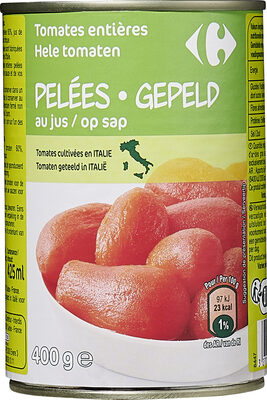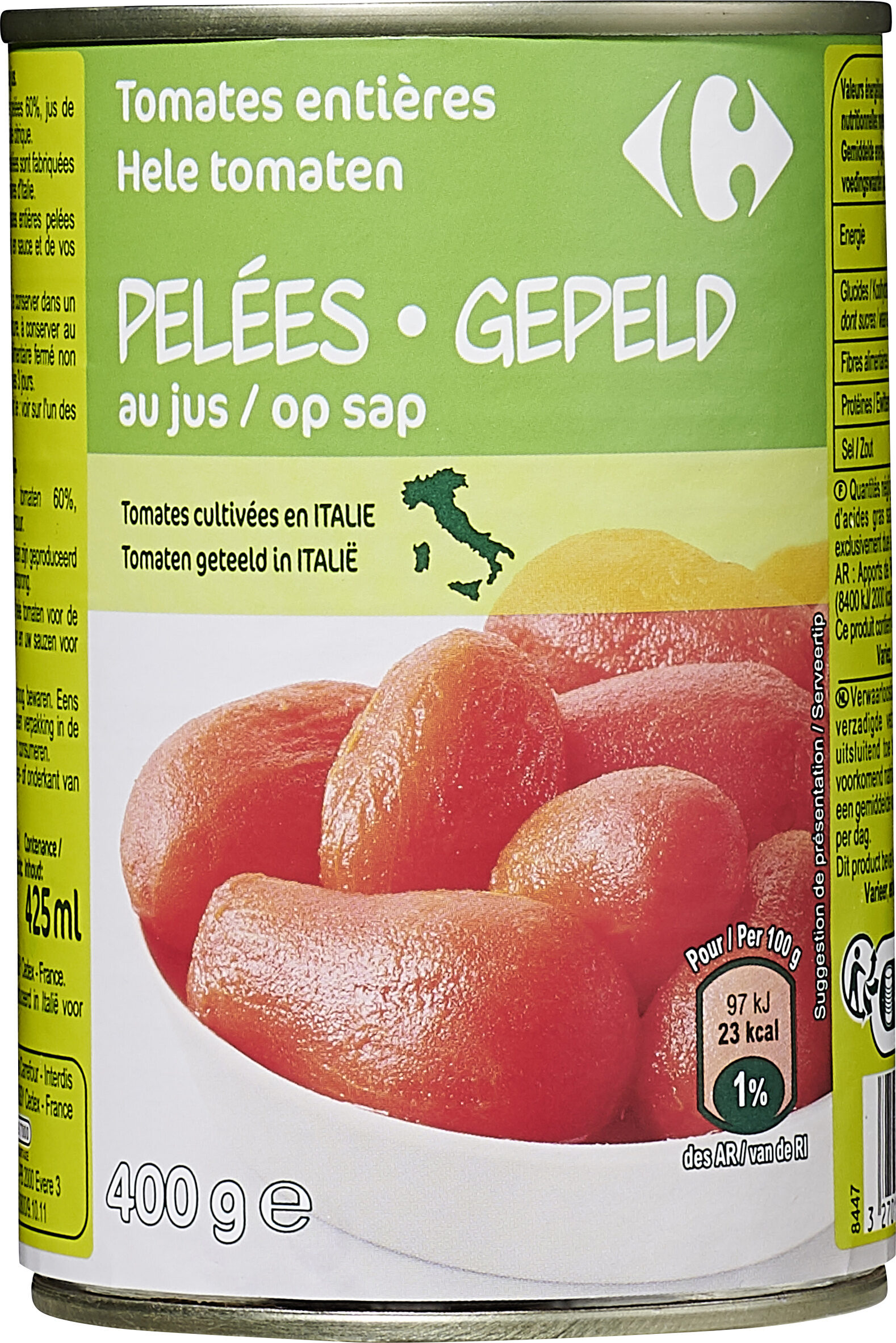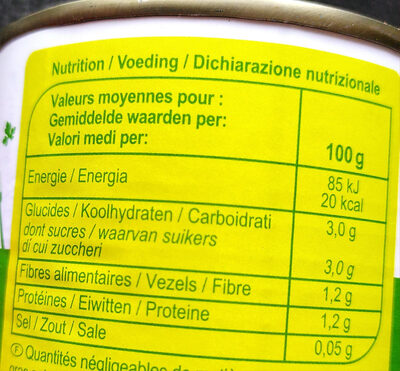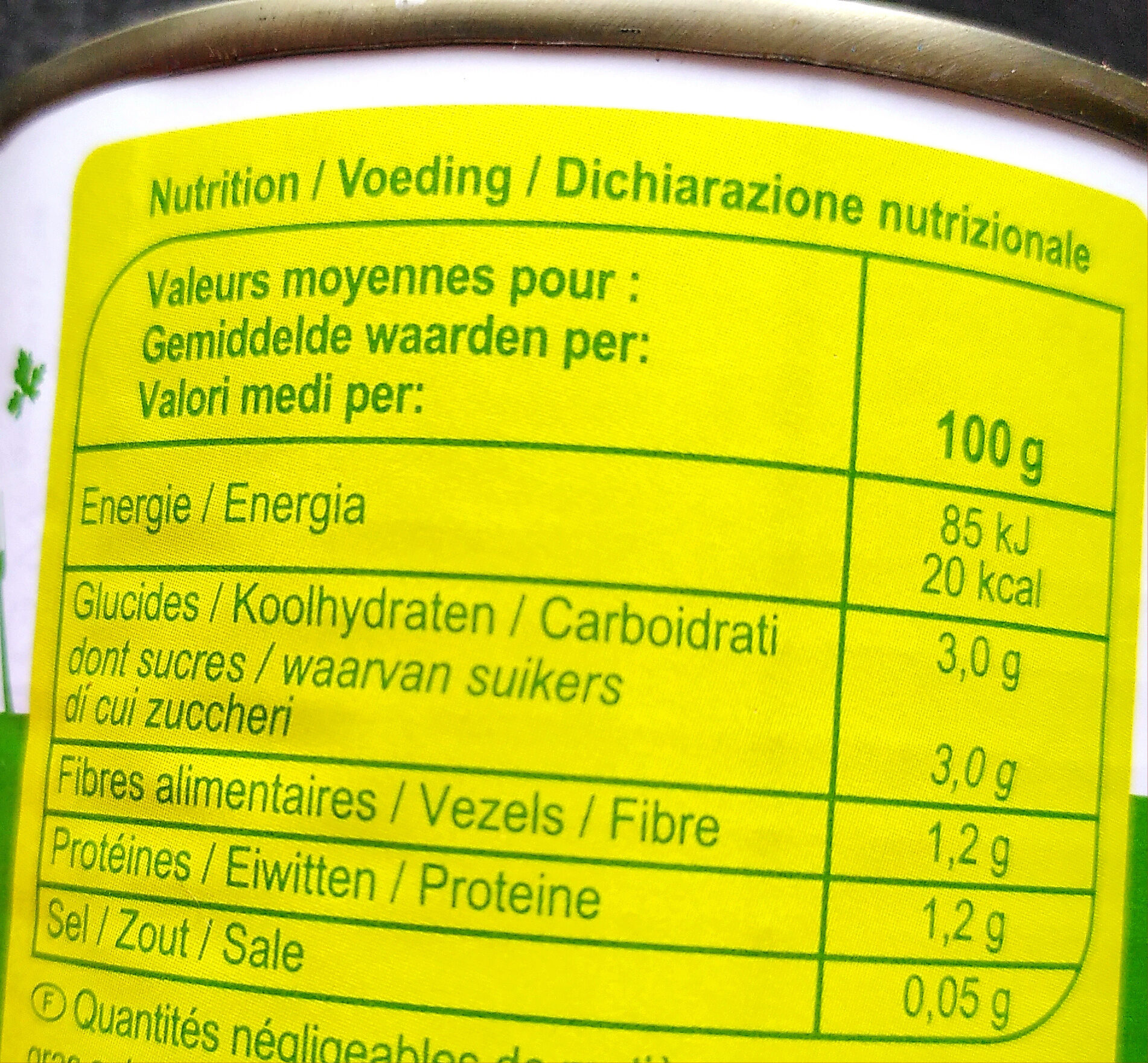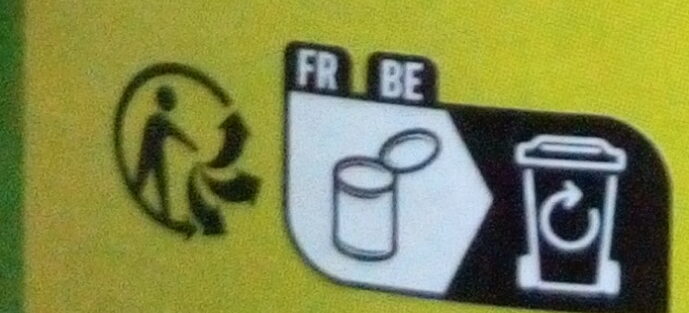Tomates pelées au jus - Carrefour - 400 g
Some of the data for this product has been provided directly by the manufacturer Carrefour.
Barcode: 3270190178460 (EAN / EAN-13)
Common name: Tomates entières pelées au jus
Quantity: 400 g
Packaging: Canned, fr:Boite à recycler, fr:Triman
Brands: Carrefour, Carrefour Classic'
Categories: Plant-based foods and beverages, Plant-based foods, Fruits and vegetables based foods, Canned foods, Vegetables based foods, Canned plant-based foods, Vegetables, Canned vegetables, Tomatoes and their products, Tomatoes, Canned tomatoes, Peeled tomatoes, fr:Tomates entières pelées au jus
Labels, certifications, awards:
Nutriscore, Nutriscore Grade A, Triman, fr:Cultivées en Italie
Origin of the product and/or its ingredients: Cultivées en Italie
Origin of ingredients: Italy
Producer: LD S.p.A “Prodotto nello stabilimento la cui sigla identificativa è riportata su uno dei fondi della lattina: FD3: Via Polcareccia 1/5 - 84087 Fisciano (SA) EMU1: Strada Consorziata - 85024 Gaudiano di Lavello (PZ)”
Link to the product page on the official site of the producer: https://www.carrefour.fr/p/tomates-entie...
Stores: Carrefour, carrefour.fr
Matching with your preferences
Other information
Other information: 400gE Tomates cultivées en Italie
Preparation: Utilisez ces tomates entières pelées pour vos sauces, potages, pâtes alimentaires et pizzas.
Conservation conditions: A conserver dans un endroit frais et sec. Après ouverture, à conserver au réfrigérateur dans un récipient alimentaire non métallique fermé et à consommer dans les 2 jours. Pour une dégustation optimale, à consommer de préférence avant le / N° de lot : voir sur l'un des fonds de la boîte.
Customer service: Interdis - TSA 91431 - 91343 MASSY Cedex - France
Report a problem
Data sources
Product added on by sebleouf
Last edit of product page on by org-carrefour.
Product page also edited by aleene, carrefour, chevalstar, cyn, date-limite-app, driveoff, ecoscore-impact-estimator, foodvisor, kiliweb, mairoluin, openfoodfacts-contributors, packbot, quechoisir, roboto-app, tacite, teolemon.
